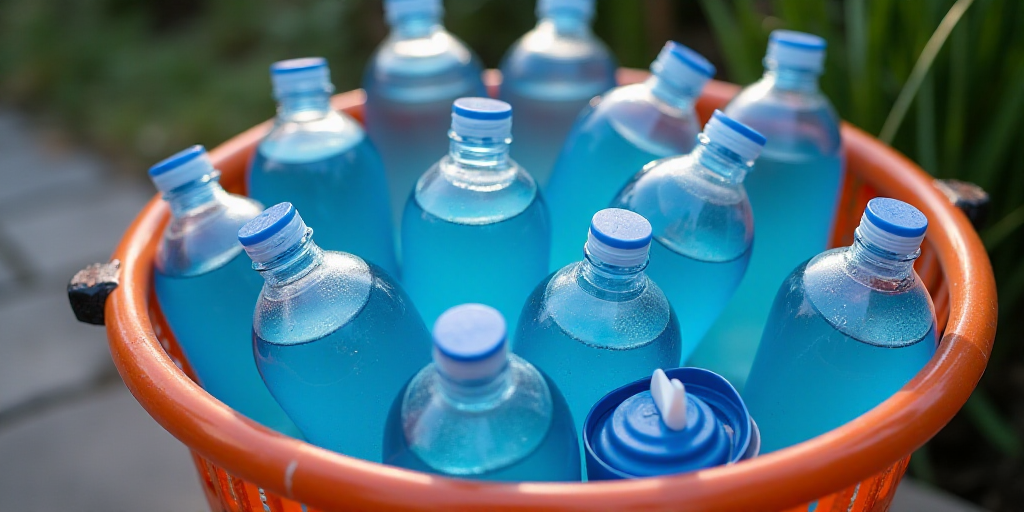Introduction
Mexico faces several misconceptions that discourage recycling, despite its benefits in waste reduction, energy savings, and resource conservation. Poor waste management and excessive consumption of certain products have contributed to the current environmental crisis.
According to the World Bank, each person in Latin America generates an average of 1.4 kg of waste daily, with over 90% of these waste ending up in landfills or the environment without proper treatment.
The Need for a Sustainable Recycling Culture
Recycling should not be viewed as a fleeting trend but rather as a permanent practice that helps reduce the environmental impact on our planet. To tackle this, Biobox, a Mexican recycling specialist company, shares common myths and their truths surrounding recycling.
Myths and Realities
1. Recycling is not that important for the planet
Recycling significantly reduces greenhouse gas emissions, saves energy, and conserves natural resources. For instance, recycling one ton of PET saves 4,000 kWh of energy and prevents the emission of up to 3 tons of CO2. Globally, recycling could reduce up to 20% of plastic marine waste by 2040.
2. Why should I sort if waste collectors mix it all?
Although public collection systems still have limitations, more companies, institutions, and platforms like BioBox ensure that recyclable waste is not mixed. Correctly separating materials from the source allows them to be channeled towards valorization centers, increasing their utilization. In fact, source separation increases the likelihood of effective recycling by over 30%.
3. Products made from recycled materials are of lower quality than new ones
Today, recycled materials can match the quality of virgin materials. Leading companies like Adidas and Coca-Cola produce products with up to 100% recycled content without compromising quality or durability, a standard that can be replicated in the food, clothing, footwear, and technology industries.
4. Recycling is only the government’s and large corporations’ responsibility
While public policies and industries play a crucial role, the success of the circular economy depends on consumers as well. The UN has emphasized that 60% of recycling effectiveness relies on citizen collaboration, especially in waste separation and disposal.
5. The recycling process pollutes more than manufacturing
Multiple studies, including one by the US Environmental Protection Agency (EPA), show that manufacturing products with recycled materials requires between 30% and 90% less energy than using virgin raw materials, resulting in fewer emissions, reduced resource extraction, and a smaller water footprint.
6. Recycling has no real impact
Recycling a single bottle may seem insignificant, but the cumulative effect is powerful. For every ton of recycled paper, 17 trees and 26,000 liters of water are saved. If every Mexican recycled one bottle daily, we would divert over 120 million containers from landfills every 24 hours.
Biobox’s Initiatives
Biobox focuses on making recycling a simple, rewarding, and accessible experience. They currently operate 250 reverse vending machines across Mexico City, along with a mobile app for users to deposit recyclable waste, earn rewards, and actively contribute to the planet’s care.
“We present ourselves as a real, accessible, and transparent alternative to transform citizens’ relationship with their waste,” says Luis Alvarado, CEO of BioBox. “With over 1,000 tons of recycled waste, we demonstrate that change begins with concrete actions. BioBox not only recycles but also connects people to a measurable and powerful purpose.”
Key Questions and Answers
- Q: Why is recycling important for the planet? A: Recycling significantly reduces greenhouse gas emissions, saves energy, and conserves natural resources.
- Q: Why should I sort my waste if collectors mix it all? A: Correctly separating materials from the source allows them to be channeled towards valorization centers, increasing their utilization.
- Q: Are products made from recycled materials of lower quality? A: Today, recycled materials can match the quality of virgin materials.
- Q: Is recycling only the government’s and large corporations’ responsibility? A: The success of the circular economy depends on consumers as well.
- Q: Does recycling pollute more than manufacturing? A: Manufacturing products with recycled materials requires less energy than using virgin raw materials.
- Q: Does recycling have any real impact? A: Recycling a single bottle can contribute to significant environmental benefits when done collectively.






